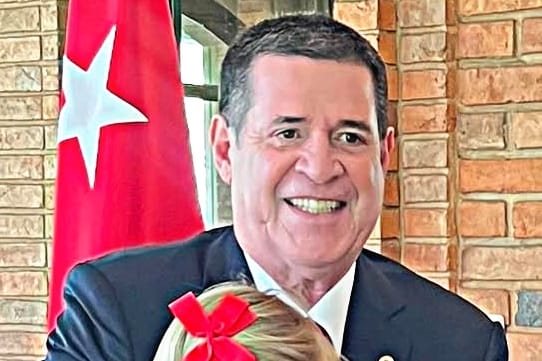Horacio Cartes, a prominent Paraguayan businessman and politician, served as the President of Paraguay from 2013 to 2018. Known for his vast wealth, controversial business dealings, and politically influential role, Horacio Cartes is one of Paraguay’s most notable contemporary figures. His journey from a business tycoon to the head of state was marked by both success and scandal, making him a central figure in Paraguayan politics. As a wealthy businessman, president, and political powerbroker, Cartes played a key role in shaping Paraguay’s modern political and economic landscape.
This article explores the life, career, and political legacy of Horacio Cartes, as well as the controversies that have defined his rise to prominence in Paraguay. It also delves into his policies as president, his business empire, and the challenges he faced in leading a nation with significant economic and social disparities.
Early Life and Career: From Business to Politics
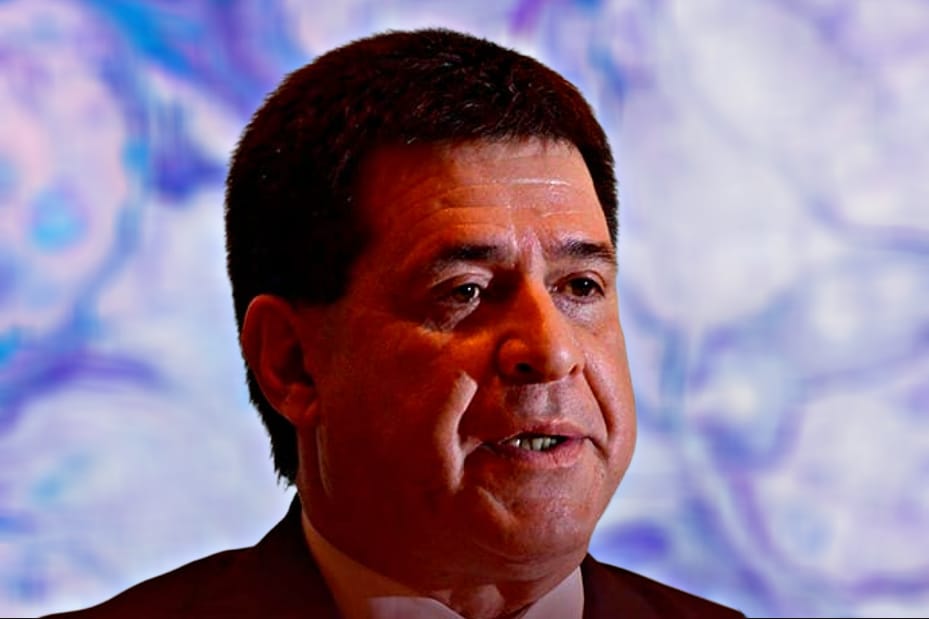
Horacio Manuel Cartes Jara was born on July 5, 1956, in Asunción, the capital of Paraguay. Horacio Cartes comes from a wealthy family with connections to the country’s political elite. His father, Horacio Cartes Velázquez, was a prominent businessman, and Cartes inherited his business acumen, which would later propel him into the world of finance and corporate power.
Cartes initially pursued a career in business rather than politics. By the 1980s, he had already established himself as a prominent entrepreneur. He is most known for founding Tabacalera del Este, a tobacco company that became one of Paraguay’s largest. Cartes also invested heavily in banking, aviation, and the construction industry, making him one of the wealthiest individuals in Paraguay. His business empire also extended into agriculture, particularly in soybean farming, which is a major sector in Paraguay’s economy.
Horacio Cartes rise to prominence as a businessman was both swift and expansive. He is said to have a keen business instinct and a reputation for aggressively pursuing business opportunities. This approach, however, has also led to accusations of cronyism and monopolistic practices, which some argue allowed him to dominate key sectors of the Paraguayan economy.
Despite his wealth, Horacio Cartes kept a low profile in politics until the 2000s. His entry into the political arena was facilitated by his growing influence in Paraguay’s elite circles. By the early 2010s, Cartes had become a key supporter of the Colorado Party, one of the two dominant political parties in Paraguay.
Horacio Cartes and the Colorado Party
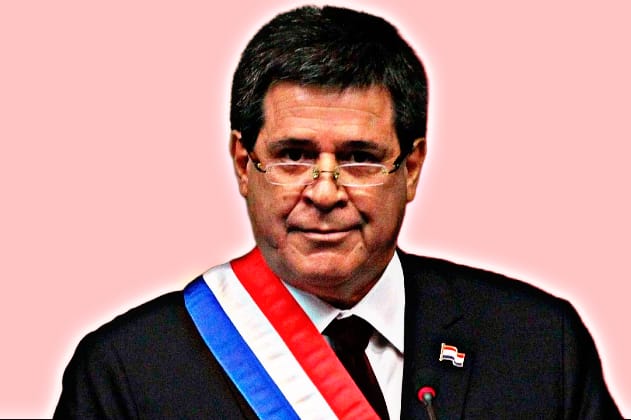
The Colorado Party (Partido Colorado) has been a major force in Paraguayan politics for much of the country’s history. Known for its right-wing ideologies, the party has held significant power in Paraguay since the civil war in the 19th century and was the ruling party during the long dictatorship of Alfredo Stroessner (1954–1989). Although the party went through a period of decline after Stroessner’s fall, it remained a strong player in the country’s political landscape.
Horacio Cartes decision to enter politics and align himself with the Colorado Party was a strategic move that solidified his status as a political powerbroker. He officially entered the presidential race in 2013 as the Colorado Party’s candidate for the presidency. His candidacy was controversial for a number of reasons. Horacio Cartes had never held elected office before and had only been a member of the party for a short time. His background in business, rather than public service, raised questions about his ability to lead the country effectively.
Despite these concerns, Horacio Cartes business credentials and financial power made him a compelling candidate. He ran on a platform promising economic growth, job creation, and anti-corruption measures, all of which resonated with the electorate. In the elections held on April 21, 2013, Horacio Cartes won a decisive victory, securing over 45% of the vote. His win marked the return of the Colorado Party to the presidency after five years of governance by the rival Liberal Party.
The Presidency of Horacio Cartes: Policies and Controversies
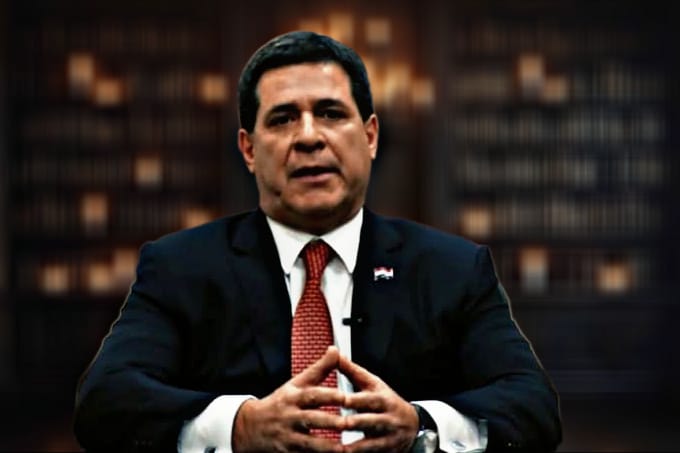
Horacio Cartes assumed the presidency of Paraguay on August 15, 2013. His time in office was marked by a series of economic reforms, controversial policies, and political tensions. Horacio Cartes presidency is often viewed as a period of economic growth, but it was also a time of heightened scrutiny over corruption allegations and questions about his leadership style.
Economic Growth and Investment
One of Horacio Cartes main achievements as president was his emphasis on economic growth and foreign investment. Paraguay, traditionally one of the poorest countries in South America, has seen steady growth in recent decades, driven largely by agriculture (particularly soybeans), hydroelectric power, and exports. Under Cartes’s administration, the economy continued to expand, and Paraguay’s GDP grew at a relatively high rate compared to other Latin American nations.
Horacio Cartes implemented several measures aimed at attracting foreign investment, including tax reforms, business incentives, and infrastructure development projects. These policies were generally well-received by the business community, and they helped solidify Cartes’s reputation as a pro-business president. The influx of investment during his tenure was also supported by Paraguay’s membership in the MERCOSUR (Southern Common Market), which opened up regional trade opportunities.
However, Horacio Cartes business background and close ties to the private sector also fueled concerns about cronyism and the concentration of wealth. Critics argued that his administration disproportionately favored the interests of large companies and business elites, leading to greater inequality in the country. Paraguay’s wealth remained concentrated in the hands of a few, while large segments of the population continued to live in poverty. These concerns were compounded by reports that Cartes and his associates benefited from questionable business dealings, which raised doubts about his commitment to genuine economic reform.
Corruption Allegations
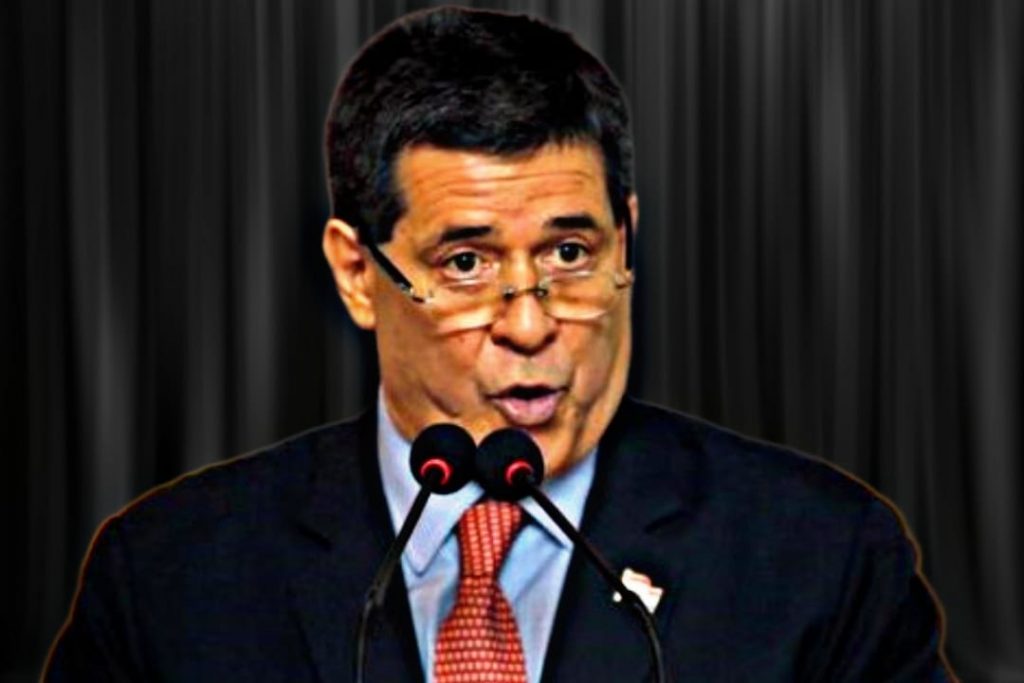
Throughout his presidency, Horacio Cartes faced several corruption allegations, which have dogged his political career since his days as a businessman. These allegations largely centered on his business dealings, including accusations that his companies engaged in tax evasion, money laundering, and illegal financial transactions. One of the most high-profile controversies was the Paraguayan Senate investigation into Cartes’s business empire, which sought to probe his links to illegal money transfers and offshore accounts.
Horacio Cartes was also accused of using his influence as president to benefit his business interests, particularly in the tobacco and banking sectors. Although he denied any wrongdoing, the accusations contributed to the perception that Cartes used his political office to enrich himself and his allies. His reputation as a businessman with a track record of questionable practices only fueled these allegations.
In addition to the corruption concerns, Horacio Cartes faced criticism for his handling of Paraguay’s justice system. Critics argued that Horacio Cartes used his political influence to shape the judiciary in ways that favored his business interests, undermining the country’s democratic institutions.
Foreign Policy and Relations with Neighboring Countries
In terms of foreign policy, Horacio Cartes worked to strengthen Paraguay’s ties with neighboring countries, particularly within MERCOSUR. However, his presidency was also marked by a series of diplomatic challenges. One of the most significant issues was Paraguay’s strained relationship with Brazil and Argentina, two of its largest neighbors.
The MERCOSUR crisis, which occurred in 2012, had left Paraguay temporarily suspended from the trade bloc due to the impeachment of then-president Fernando Lugo. Cartes sought to restore Paraguay’s standing in the bloc, but he faced resistance from other MERCOSUR members, particularly Argentina and Brazil. These tensions created friction during his presidency, especially as he pushed for stronger trade relations and integration with the broader South American market.
Despite these challenges, Horacio Cartes succeeded in securing several key agreements with neighboring countries, including trade agreements and cooperative efforts on energy and infrastructure projects.
Social Policies and Public Opinion
Horacio Cartes’s social policies were often criticized for not doing enough to address the country’s pressing social issues, including poverty, education, and healthcare. While his administration focused heavily on economic growth, many Paraguayans felt that the benefits of this growth did not trickle down to the most vulnerable segments of society. Inequality remained a persistent issue, and many of Horacio Cartes social initiatives were seen as insufficient to address the country’s underlying structural challenges.
Public opinion during Horacio Cartes presidency was mixed. While some hailed his economic achievements, particularly in attracting foreign investment and boosting GDP growth, others expressed dissatisfaction with his perceived elitism and failure to address inequality. Cartes’s approval ratings fluctuated throughout his tenure, and while he maintained a solid base of support within the Colorado Party, his administration faced significant opposition from civil society groups, including labor unions and indigenous communities.
The End of Cartes’s Presidency and Legacy
Horacio Cartes’s term as president ended on August 15, 2018, when he was succeeded by his political ally, Mario Abdo Benítez. While his presidency was marked by economic growth and relative stability, it also left a legacy of political polarization, corruption allegations, and a deepened divide between Paraguay’s elite and its marginalized communities.
Horacio Cartes legacy as a businessman and politician is still the subject of debate in Paraguay. He is widely regarded as a man of great wealth and influence, but his political career has raised concerns about the concentration of power in the hands of a few. His tenure as president left Paraguay with significant economic achievements, but it also highlighted deep issues related to corruption, inequality, and political patronage.

